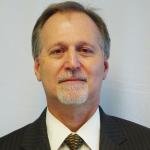When and how did you start working on trade issues?
I first started working on trade in 1985. I was hired by the US Department of Agriculture (USDA)’s Economic Research Service (ERS) to help forecast Soviet and East European demand for US agricultural products. In the early 1970s the Soviet Union quietly bought up to one-quarter of the US grain crop when it was experiencing a bad harvest but no one knew. After this the USDA decided it needed to better understand what was happening in this part of the world that was largely isolated from Western markets and information flows. I had written my PhD dissertation on Soviet investment policy reforms and had taken international trade, but not looked at trade in my dissertation. While I had a good grounding in quantitative methods and econometrics, I found that applied agricultural trade work used a lot of mixed econometrics, simulation modelling, and deep quantitative calculations around specific trade policy interventions. It was a fascinating experience, and my work ranged from visiting Soviet agricultural fields, reading Soviet newspapers and journals, to building simulation models of the Soviet agricultural economy (when many of my colleagues argued Western neoclassical economic models were inappropriate), and generating econometric estimates of technological and allocative efficiency in Soviet agricultural production vs. that in the West. When reform and opening up started in the late 1980s I had the opportunity to brief high-level policymakers on the potential impacts, as well as see how useful my models were.
At about the same time I was starting to work on the agricultural negotiations in the Uruguay Round of GATT negotiations and EU Common Agricultural Policy reform. Quite an immersion into trade policy and applied policy analysis. Very exciting times. I ended up shifting my focus to trade during my 12 years at ERS and continued that through my work at the United States International Trade Commission – but with an interesting break for a couple of years coordinating research and education programmes on rural and community development challenges with Land Grant Universities in the US. There I learned that even rich developed countries had substantially different economic development paths and challenges at the subnational level, and that sociologists and political scientists understood the potential social impacts of these challenges much better than economists.
What are your main research interests and how have they evolved over the years?
My main research focus has largely been driven by the needs of policymakers and my interest in rigorous analysis of trade and trade policy effects. From initially focusing on estimating import demand, to quantifying complex policy interventions (how does one economically model EU set-aside programmes and per head animal payments in the context of a changing EU and global trade policy environment?), to estimating the economic effects of US free-trade agreements on the US economy, to understanding the role of trade in the context of broader economic forces that cause economic adjustments similar to trade effects, to quantifying global value chains and understanding the interplay of technology on trade and vice versa, to designing long-run scenarios for the evolution of global trade, which is the main area I am focused on right now. I am elaborating longer-run simulation models that try to capture evolving comparative advantage, changing consumer tastes, and various other forces to provide scenarios of how world trade could change and isolate how these forces drive those changes in the context of other economic forces. I am also spending a lot of time on the intersection of micro trade policy and the macro economy. Our micro-focused models perform pretty well when looking at, say, the current trade conflict, but trade policy folks often overlook macro policy impacts, and how these forces may interact.



